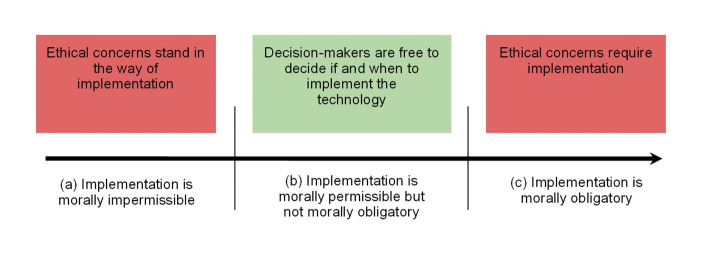Health Technologies and Impermissible Delays: The Case of Digital Breast Tomosynthesis.
IF 3
2区 哲学
Q1 ENGINEERING, MULTIDISCIPLINARY
引用次数: 0
Abstract
This paper argues that we have a moral obligation to implement certain health technologies even if we have limited or incomplete evidence of their effectiveness. The focus is on technologies used in non-emergency settings, as opposed to "exceptional cases" such as compassionate use and emergency approvals during public health emergencies. A broadly plausible moral principle - the Ecumenical Principle - is introduced and applied to a test case: the use of Digital Breast Tomosynthesis in mammographic screening. The paper concludes by exploring the implications of the Ecumenical Principle for the adoption of other new health technologies.

健康技术和不允许的延迟:数字乳房断层合成的案例。
本文认为,我们有道德义务实施某些卫生技术,即使我们对其有效性的证据有限或不完整。重点是在非紧急情况下使用的技术,而不是在公共卫生紧急情况下的“特殊情况”,如同情使用和紧急批准。一个广泛可信的道德原则——普世原则——被引入并应用于一个测试案例:在乳房x线摄影筛查中使用数字乳房断层合成技术。论文最后探讨了统一原则对采用其他新的卫生技术的影响。
本文章由计算机程序翻译,如有差异,请以英文原文为准。
求助全文
约1分钟内获得全文
求助全文
来源期刊

Science and Engineering Ethics
综合性期刊-工程:综合
CiteScore
10.70
自引率
5.40%
发文量
54
审稿时长
>12 weeks
期刊介绍:
Science and Engineering Ethics is an international multidisciplinary journal dedicated to exploring ethical issues associated with science and engineering, covering professional education, research and practice as well as the effects of technological innovations and research findings on society.
While the focus of this journal is on science and engineering, contributions from a broad range of disciplines, including social sciences and humanities, are welcomed. Areas of interest include, but are not limited to, ethics of new and emerging technologies, research ethics, computer ethics, energy ethics, animals and human subjects ethics, ethics education in science and engineering, ethics in design, biomedical ethics, values in technology and innovation.
We welcome contributions that deal with these issues from an international perspective, particularly from countries that are underrepresented in these discussions.
 求助内容:
求助内容: 应助结果提醒方式:
应助结果提醒方式:


